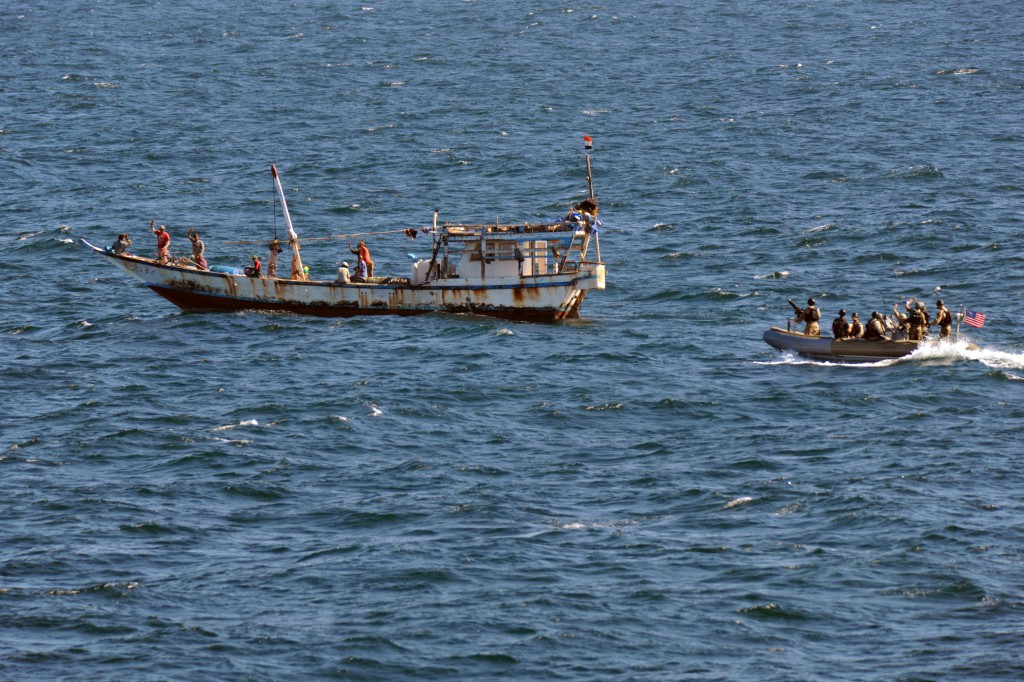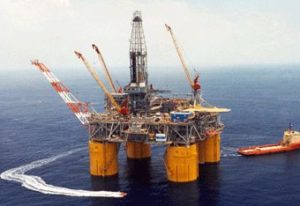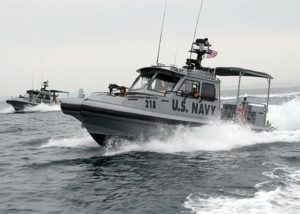 CC Image Courtesy of U.S. Navy
CC Image Courtesy of U.S. Navy
Understanding Mexico’s Piracy Problem
On June 17th, the U.S. Department of State issued a warning regarding rising piracy trends in the southern Gulf of Mexico. Mexico’s focus on curbing cartel violence has allowed maritime piracy to expand relatively unchecked. The recent decision by Mexican President Andrés Manuel López Obrador to crack down on piracy suggests the Government’s priorities are shifting. However, dozens of attacks in recent years suggests combatting piracy will prove challenging.
Mexico’s rising piracy problems are of interest to the United States. The U.S. imports approximately 9% of its crude oil and petroleum from Mexico. Furthermore, 32.4 million American citizens traveled to Mexico in 2019, with many vacationing along Mexico’s pristine coastlines. As such, the U.S. should consider helping Mexico’s Navy confront its piracy. By offering assistance to help thwart piracy networks, the U.S. would improve relations with its southern neighbor at a time when America needs all the allies it can get.
The Gulf of Mexico
Situated between the United States, Cuba, and Mexico, the Gulf of Mexico encompasses an area of roughly 600,000 square miles. The region boasts an abundance of natural resources, including a wealth of petroleum. The Bay of Campeche is the source of the majority of Mexico’s oil, with over 200 oil platforms located throughout the bay.

Oil platform in the Gulf of Mexico. Source: U.S. National Oceanic and Atmospheric Administration (NOAA).
A recent increase in piracy raises alarm. In 2016, only 46 attacks were reported to authorities, while 197 incidents were reported in 2018, an increase of 310% in only two years. From January through September 2019, an average of 16 ships were attacked a month throughout the waters of Ciudad del Carmen, Campeche, and Dos Bocas, Tabasco. According to the International Transport Workers Federation, there were roughly 180 thefts and robberies in the Bay of Campeche in 2019 alone. In 2020, there have thus far been 19 reported incidents.
Piracy Tactics and Motivations
Many attacks in the southern Gulf of Mexico share a similar modus operandi (MO). The attacks often target “vessels and offshore platforms associated with the Mexican oil industry.” Most incidents occur in the dark at night and have between 5 and 15 pirates operating multiple boats that have been repurposed for increased speed to outmaneuver the oil vessels. The pirates often disguise their vessels to appear as local fishermen or law enforcement officials, and they carry a variety of weapons, such as assault rifles, shotguns, machetes, and knives.
In addition to oil, pirates also target other high-value items to resell on the black market, including “communication and navigation equipment, fuel, motors, oxygen tanks, construction material and, in several cases, the lights from helicopter landing pads.” The pirates often avoid inflicting major injuries, which helps them avoid the attention of Mexican law enforcement. Minimal arrests have likely emboldened pirates over recent years, and it is plausible that corrupt government officials have assisted piracy networks by warning them of search patrols or averting law enforcement’s attention elsewhere.
Government Responses
In recent months, multiple U.S. Government agencies have released warnings regarding the southern Gulf of Mexico. The Department of State issued its June 17th warning for the potential of “armed criminal groups hav[ing] been known to target and rob commercial vessels, oil platforms, and offshore supply vehicles.” The Department of Transportation’s Maritime Administration (MARAD) issued alerts in April and May cautioning of recent attacks along the coast. MARAD also notes that piracy in the region may be a bigger concern than realized as there are likely a “significant number of underreported attacks,” as oil vessels and fishermen may not report for fear of retribution.
However, the complaints from merchants and oil vessel owners have prompted the Mexican Government to respond. In March 2020, President López Obrador announced Mexico’s Navy would “establish a permanent operation at the port of Dos Bocas, Tabasco” to combat the maritime assailants. Mexico’s Navy has taken active measures to increase maritime surveillance by utilizing “ocean patrols to helicopters to interceptors” in attempts to hinder the attacks. Most recently, in June, the Navy announced it would continue confronting the piracy by assigning “15 ships, 24 smaller patrol boats, and 5 aircraft” to patrol the waters around the southern Gulf. Although COVID-19 has reduced activity in the Gulf, the security measures have suggested effectiveness thus far, as only 3 robberies were attempted in May, and zero in June. However, it is likely that the pirates will adapt their tactics to circumnavigate the added defenses.

Coastal Riverine Squadron (CRS) 11 performing navigational check rides at Marine Corps Base Camp Pendleton. Source: U.S. Navy.
Why it Matters to the U.S.
The U.S. is keenly aware of events occurring in the southern Gulf of Mexico, evident in multiple security alerts across several government agencies. Piracy is likely to increase in the Gulf as opportunities arise for criminal organizations. Former Chief of International Operations for the U.S. Drug Enforcement Agency (DEA) Mike Vigil suspects oil theft “is going to be the wave of the future.” This is particularly important as Mexico represents 9% of U.S. crude oil/petroleum imports. While the U.S. exports more petroleum to Mexico than it receives, it still represents a significant portion of the economic and diplomatic ties binding the U.S. to its neighboring country.
While COVID-19 has disrupted the short-term travel plans of American tourists, Mexico’s coastal beaches have and will continue to be a popular tourist destination for Americans. The states of Yucatan and Quintana Roo, adjacent to Campeche, include popular travel destinations, including Cancun, Playa Del Carmen, Tulum, and Cozumel. With maritime robberies increasing, it is possible pirates attempt to expand their activities to target cruises and tourist ships.
The U.S. should consider engaging with Mexico’s Navy to establish greater security measures for curbing piracy networks. Assisting the Mexican Navy would improve tense relations that have grown between the U.S. and Mexico in recent years, and offer new military cooperation with one of America’s neighbors and allies. As American leadership is questioned on the international stage, enhancing ties with its allies should be of paramount importance.






